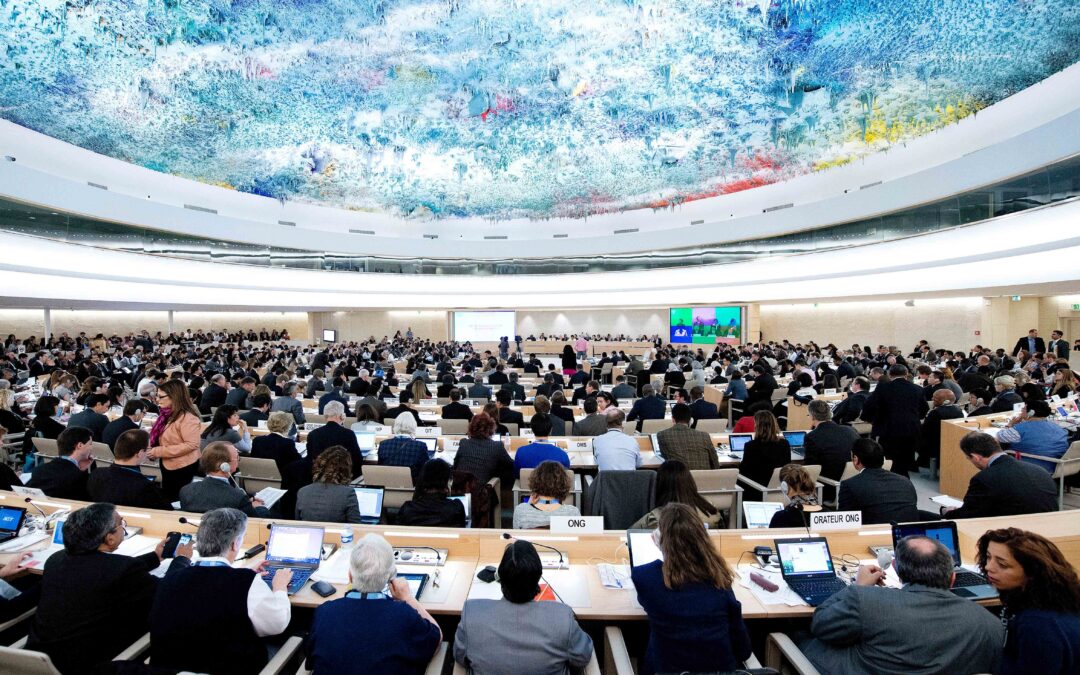
Mar 12, 2017 | Advocacy, Non-legal submissions
The ICJ has made an oral statement to the UN Human Rights Council on a range of measures needed to ensure truth, justice, reparations and non-repetition of past violations, in Nepal.
The statement read as follows:
TRUTH, JUSTICE, REPARATION, AND GUARANTEES OF NON-RECURRENCE IN NEPAL
10 March 2017
Mr. President
Without effective measures to ensure truth, justice, reparation and guarantees of non-recurrence, countries in situations of transition or post-conflict fail victims and put future reconciliation, peace and stability at risk. One example is Nepal.
Nepal’s Truth and Reconciliation Commission and Commission of Investigation on Disappeared Persons have not been effective. Changes are needed to bring their legal frameworks and operations in line with international standards and Supreme Court jurisprudence. These bodies require adequate resources. Trust-building measures including consultation processes must address the perspectives and needs of victims and for victims to feel ownership over the transitional justice process in Nepal.
Nepal must ensure prompt, independent and impartial investigation and prosecutions for serious human rights violations, including those committed during the armed conflict.
It must ensure justice and reparation for victims, including as provided for in the UN Basic Principles and Guidelines on the Right to a Remedy and Reparation.
It must criminalize serious crimes under international law in a manner that is consistent with international law, to help prevent such violations ever occurring again.
Nepal should also issue a standing invitation to all thematic special procedures of the Council.
Thank you, Mr. President.
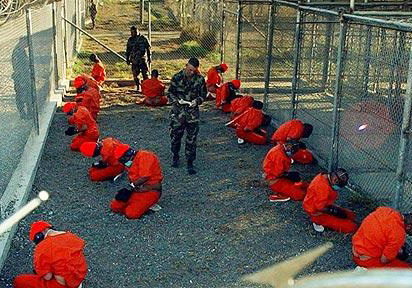
Jan 26, 2017 | News
The ICJ deplores comments made last night by the United States President Donald Trump, expressing approval for the practice of torture in counter-terrorism operations.
The ICJ is also alarmed at reports that the US administration is considering resurrecting the most abusive policies and practices during the early 2000s, including prolonged arbitrary detention in CIA-administered secret “black site” facilities, enforced disappearance, and rendition to other countries for torture and ill-treatment.
“These practices of torturing detainees and ‘disappearing’ them in black sites are serious crimes which must never be repeated,” said Ian Seiderman, ICJ Legal and Policy Director.
“Even President Bush, despite his administration’s appalling record, publicly denounced torture as being against the laws and values of the United States,” he added.
Contact:
Ian Seiderman, ICJ Legal and Policy Director, t: +41 22 979 3837 ; e: ian.seiderman(a)icj.org
Background:
During an interview on US television last night, President Trump repeated his support for torture practices such as waterboarding (near-drowning) and declared that “torture works.”
A number of media reports have indicated that the Trump Administration may issue an Executive Order to review “whether to reinitiate a program of interrogation of high-value alien terrorists to be operated outside the United States” and whether the CIA should be in charge of such a programme.
Counter-terrorism abuses during the Bush administration from 2001-08 involving torture, enforced disappearance, secret detention and rendition were widely condemned as unlawful, morally unacceptable, and ineffective, both internationally and in the US, leading to the abandonment of such practices.
A report by the Eminent Jurists Panel of the ICJ on Terrorism, Counter-terrorism and Human Rights, issued in 2009 conducted after a four-year study concluded that “such practices are not a legitimate response to the threat of terrorism. Such practices are not only inconsistent with established principles of international law, and undermine the values on which free and democratic societies are based, but as the lessons of history show, they put the possibility of short term gains from illegal actions, above the more enduring long term harm that they cause.”
The Obama administration definitively abolished the practices of torture and secret detention upon taking office in 2009, although they had already been substantially wound down in the later years of the second Bush administration.
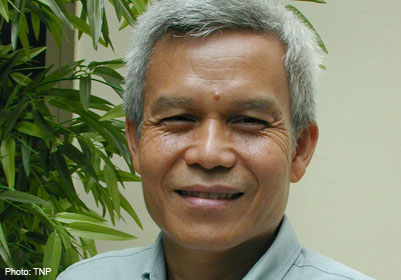
Dec 15, 2016 | Advocacy
On the fourth anniversary of the enforced disappearance of prominent Lao civil society leader Sombath Somphone, the ICJ and other organizations condemn the government’s ongoing failure to conduct an effective investigation with a view to determining his fate.
The full statement can be downloaded here:
Laos-sombath4years-advocacy-2016-eng (in PDF)
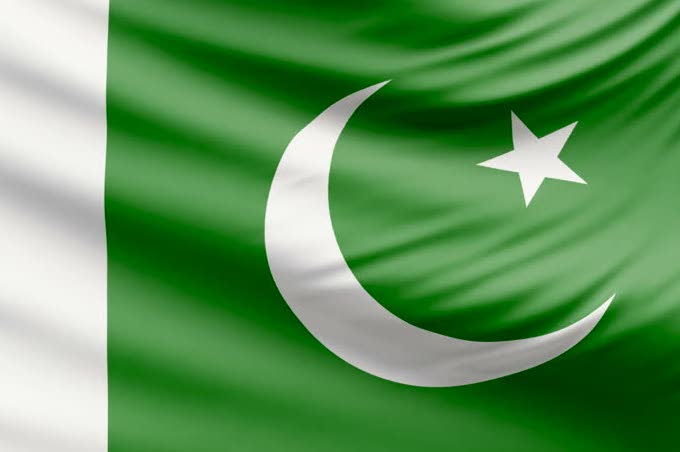
Sep 15, 2016 | Advocacy, Non-legal submissions
The ICJ, with support of the NGO the Human Rights Commission of Pakistan (HRCP), spoke at the UN Human Rights Council today on the continuing problem of enforced disappearances in Pakistan.
The statement was delivered during an interactive dialogue with the Working Group on Enforced or Involuntary Disappearances.
The ICJ, with support of the Human Rights Commission of Pakistan (HRCP), welcomed the Working Group’s follow-up report on recommendations from its 2012 visit to Pakistan, and stated further as follows:
The practice of enforced disappearance has persisted and expanded since the Working Group’s visit. Previously restricted mainly to Balochistan, the Federally Administered Tribal Areas and Khyber Pakhtunkhwa, enforced disappearances are now a nation-wide phenomenon.
In August 2015, Zeenat Shahzadi, a Pakistani journalist, went “missing” from Lahore, a rare case of alleged enforced disappearance of a woman.
Estimates of the overall number of cases of enforced disappearance vary. The official Commission of Inquiry on Enforced Disappearances has reported nearly 1,400 unresolved cases.
The HRCP, an NGO that documents human rights violations in 60 districts, has reported 370 cases of enforced disappearance since 2014.
Other NGOs claim between 5,000 to 18,000 cases. Even by the most conservative estimates, a significant number of enforced disappearances remain unresolved.
The Government has not brought perpetrators to account in even a single case of enforced disappearance. Rather than effective measures to prevent the practice or to strengthen existing accountability mechanisms, recent legislation actually facilitates enforced disappearances.
In January 2015, Pakistan empowered military courts to try civilians for terrorism-related offences. These courts have since sentenced at least 100 people to death, and at least 12 have been hanged, after grossly unfair trials without possibility of appeal to any civilian courts, including the Supreme Court.
Families allege that some of those tried had been subjected to enforced disappearance by military authorities, and military control over the proceedings leaves the family and victim without effective remedy.
Victims’ groups, lawyers, and activists working on enforced disappearance also continue to face security risks including attacks, harassment, surveillance, and intimidation.
The ICJ and HRCP commend the Working Group for its systematic follow-up, which can have a positive impact, and urge the Working Group to continue to monitor and report on the situation in Pakistan.
The statement may be downloaded in PDF format here: hrc33-oralstatement-disappearances-pakistan-15092016
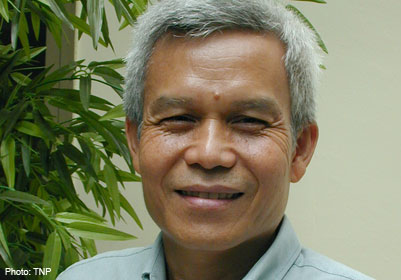
Aug 31, 2016 | News
ASEAN meeting should highlight disappeared Lao leader Sombath Somphone, denial of liberties, said human rights and advocacy groups at a press conference held today in Bangkok.
On the eve of the annual ASEAN leaders summit in Vientiane, the groups (Human Right Watch, ASEAN Parliamentarians for Human Rights, Civil Rights Defenders, Focus on the Global South, Mekong Watch and the ICJ) called upon the Lao PDR Government to commit to address its widespread violations of human rights, including instances of enforced disappearances and arbitrary detention.
Visiting world leaders have a unique opportunity to publicly raise human rights concerns during the ASEAN summit in Vientiane from September 6-8. They should press the Lao government to cease the abuses that have consistently placed Laos at the bottom of rights and development indexes measuring rights, press freedom, democracy, religious freedom, and economic transparency, the groups added.
At the event organized by The Sombath Initiative at the Foreign Correspondents Club of Thailand in Bangkok, the groups also released a set of briefing papers on forcibly disappeared civil society leader Sombath Somphone (photo), Laos’ restrictions on democracy and human rights, lack freedom of expression, failure to meet human rights obligations, and impacts of foreign aid and investment.
“More than three and half years after he disappeared, the Lao government still has provided no clear answers to what happened to my husband, Sombath Somphone, who was taken away in truck at a police checkpoint in Vientiane,” said Shui Meng Ng, wife of Sombath and board member of The Sombath Initiative.
“President Obama, the United Nations, and ASEAN and its dialogue partners should urge the Lao Government to urgently resolve the case of Sombath’s enforced disappearance and return him safely to me and my family. They should also demand the Lao Government end enforced disappearances, so that the ordinary people of the country can respect their government rather than fear it.”
“The fact that the Lao PDR government’s last detailed report on the progress of the investigation was released over three years ago suggests the Lao authorities are not carrying out an effective investigation into this case as they are required to do under international law,” said Kingsley Abbott, a Senior International Legal Adviser with the International Commission of Jurists (ICJ).
“It is not enough for the Lao government to simply keep asserting on the international stage that it is investigating this case. International law obliges Lao PDR authorities to conduct an investigation that is credible and effective, and provide regular updates on its progress including to Sombath’s wife, Shui Meng,” he added.
Basic civil and political rights are systematically denied in Laos, and government authorities move quickly to arbitrarily arrest those expressing critical views of the government, either in day to day life or more recently on-line.
In March 2016, police arrested three Lao migrant workers who had posted critical comments about the Lao government while they were working in Thailand, and continues to detain them arbitrarily. A Lao court also sentenced activist Bounthanh Khammavong in September 2015 to 4 years and 9 months in prison for posting critical comments on Facebook.
Laos also imposes onerous restrictions on the right to freedom of association that are incompatible with its human rights obligations.
The government strictly controls the registrations of organizations such as non-profit associations (NPAs), and closely monitors the work plans and budgets of NPAs that it does approve to operate.
Any person who dares to organize and operate an unsanctioned organization faces arrest and prosecution.
Workers are compelled to belong to the Lao Federation of Trade Unions and organizing unions outside that framework is illegal. At the village level, mass organizations controlled by the ruling Lao People’s Revolutionary Party are often the only organizations operating.
Public protests or assemblies are strictly forbidden without government permission, and any efforts organize such events face immediate suppression by the police and security forces.
“Civil society in Laos remains under a hostile spotlight from the government, and UN rights officials have noted that there are few places in the world where they have encountered greater fear and intimidation among community organizations and NGOs,” said Walden Bello, former member of the Philippines Congress and Vice Chair of ASEAN Parliamentarians for Human Rights (APHR).
“Laos has now become one of the most rights repressing countries in ASEAN: leaders in the region and from around the world must stop looking the other way, and demand Vientiane end its asphyxiation of independent civil society,” he added.
Read the full text and quotes here: Laos-End to Human Rights Abuses-News-Press Releases-2016-ENG (in PDF)
Contact
Kingsley Abbott, ICJ Senior International Legal Adviser, t: +66 9 4470 1345, e: kingsley.abbott(a)icj.org









